Research diary outtake:
I went to an anti-nuclear protest in downtown Tokyo on Sunday. A few police were there to escort the protestors, occasionally stopping traffic and blowing their police whistles. It was an extremely controlled and polite affair. The police even told the protesters when and where to stop, which they promptly did.
It was a small protest by any standard, only twenty three people in total, the average age being somewhere in the mid-sixties. Holding anti-nuclear banners they chanted “No Nukes!” in English, and an elderly lady with a microphone made remonstrations about Fukushima through a megaphone.
I followed them as they slowly walked their way through the busy shopping district of Shibuya; moving at the pace of a funeral march – the police van ahead acting as their hearse. One protestor attempted to hand out flyers to the sea of shoppers who weaved past. Very often passers-by turned down the offer of a leaflet, politely bowing their head in rejection.
This small group of elderly protesters seemed so insignificant against the backdrop of Shibuya’s heaving intersection. The throng of faces waiting, texting, only occasionally glancing up – momentarily – at the comparatively unusual sight of a protest in Japan, before continuing on as they were.
In some ways it reminded me of a discussion I had last week at a ‘roundtable’ about Fukushima hosted by the the Foreign Correspondents Club of Japan. Several academics were there, as well as a Ukrainian diplomat and Japanese politician Tsuyoshi Shiina from the opposition ‘Unity Party‘ (結いの党).
The general consensus from the invited speakers was that the Fukushima accident has had relatively little impact on Japan’s political landscape. Much like how this small group of protesters was having little impact on the opinions of the thousands of uninterested onlookers.
What I took away from the roundtable about the political impact of Fukushima was both interesting and surprising. You can watch the whole discussion the video below.
At the time of writing we are almost three and a half years after the Fukushima nuclear disaster. A similar period of time after Chernobyl occurred in the ‘Ukraine Soviet Socialist Republic’ [Украинская Советская Социалистическая Республика] – the Soviet Union collapsed. Some academics such as Phillip Stone, Marjolein van der Veen, as well as myself, have attributed Chernobyl as a key factor leading to the sudden and unexpected implosion of the Soviet Empire. Chernobyl was, as one journalist reminded me at the Fukushima roundtable, the real start of Glasnost, of freedom of information. It showed for the first time the complete failure of the Soviet Union to protect its citizens.
In Japan there are no signs of such change. Given the far-reaching consequences of Chernobyl – might we expect more? In Japan there is no real questioning of the status-quo, at least at the national level, at least at the level of mainstream politics. The current government in fact, has never been stronger, with Prime Minster Shinzō Abe (安倍晋三) even able to pass a controversial law ending Japan’s constitutionally implied post-war pacifism.
Nuclear energy has not even become a totem around which opposition movements can pin their colours, as happened with Polish independence movements after Chernobyl. Instead we have the opposite – an entrenchment of political voices that means Japan’s energy landscape, which saw a reduction of nuclear power by 95% since 2010, will only be a brief hiatus in the onward march towards nuclear energy. The Fukushima-Daiichi accident is, then a mere bump in the road. In Japan the ‘nuclear village’ – as guest speaker Dr Christopher Hobson frames it – is as strong as ever, with the incumbent and opposition parties in Japan unable to offer any real alternative to nuclear power.
***
I guess one expects things that one looks at intensely to hold a stronger significance. We are perhaps all guilty of attributing greater significance to things we signify as important. Perhaps Chernobyl did not have that large an impact on the political landscape of the USSR, if Fukushima is anything to go by. Or perhaps the official political impact of disasters is the wrong measure, and skirts around the real impacts felt by the damaged and abandoned communities who always seem to preface nuclear disaster. Perhaps the undeniable social fallout – is where Chernobyl and Fukushima become uneasy bedfellows for comparison.
Chernobyl may not be the right lens through which to view all nuclear disasters, but its magnitude has fated each future meltdown to be compared – cheek by jowl. There is some truth in the cliché that ‘If you’re holding a hammer then everything starts to look like a nail‘. My hammer is four years of doctoral research about Chernobyl, so no surprise, then, that in my mind at least, Fukushima is the Chernobyl of the East. I’m hardly the first and won’t be the last to compare one with the other. It’s how we understand anything, through comparison, through metaphor.
The dissonance between the small group of elderly protestors marching slowly through Shibuya and the mass of passive onlookers glancing up with indifference reminded me of the political situation in Japan. It spoke to the disconnect between a disaster’s huge social impact, and its apparent limited impact on the political landscape.
***
Read more on Hobson’s research on the post-3/11 politics and nuclear power in his recent paper here.
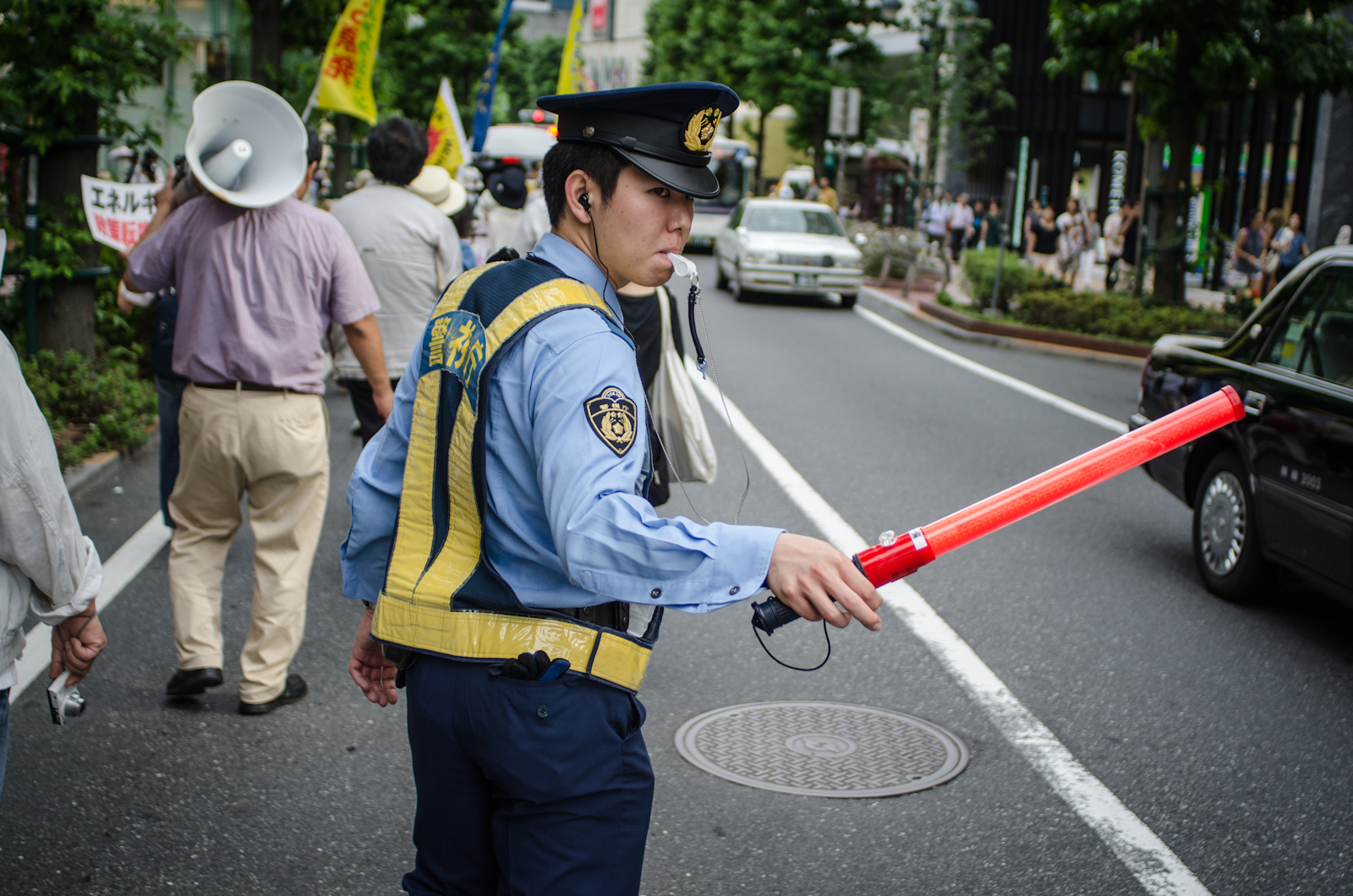
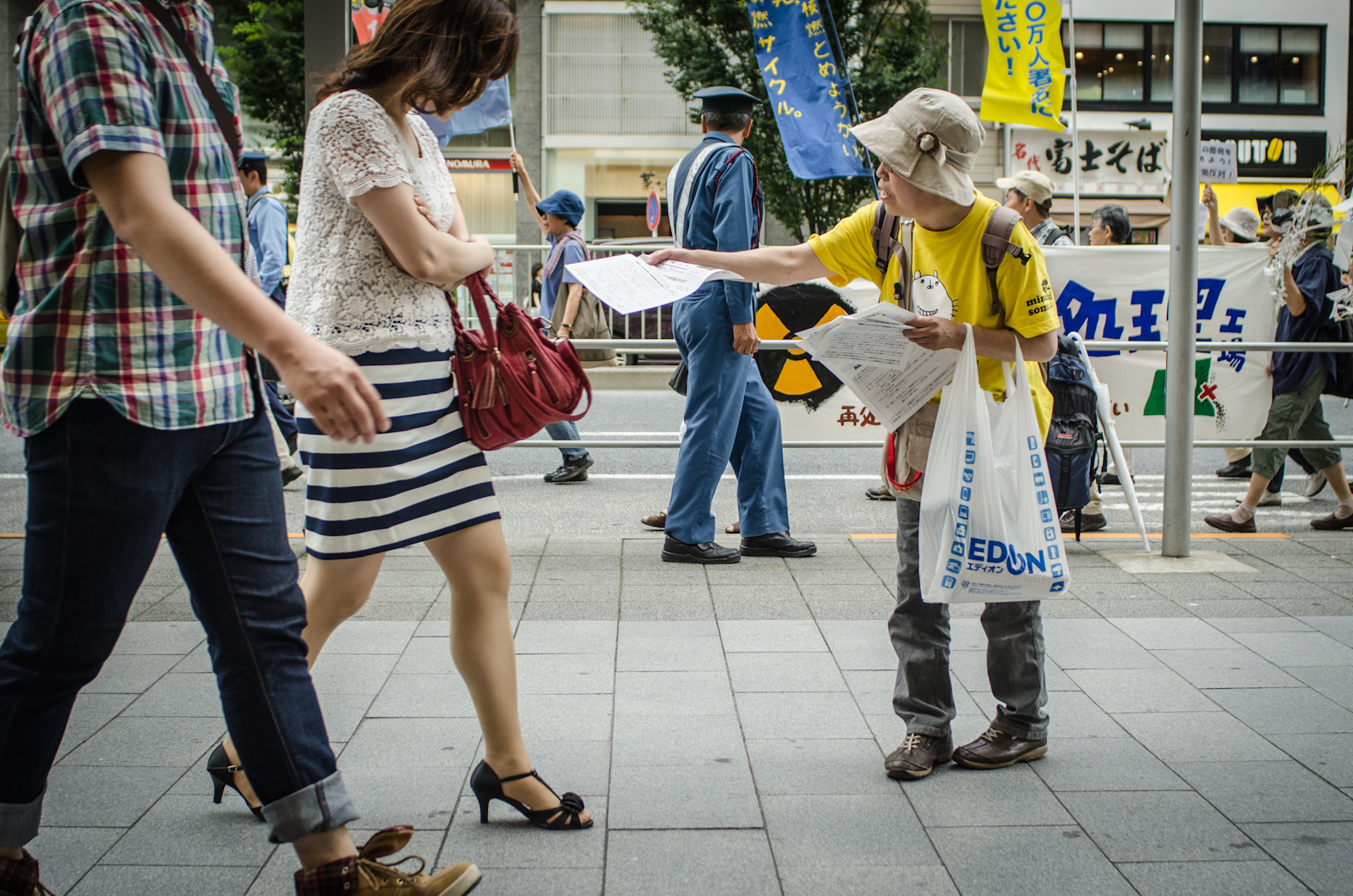
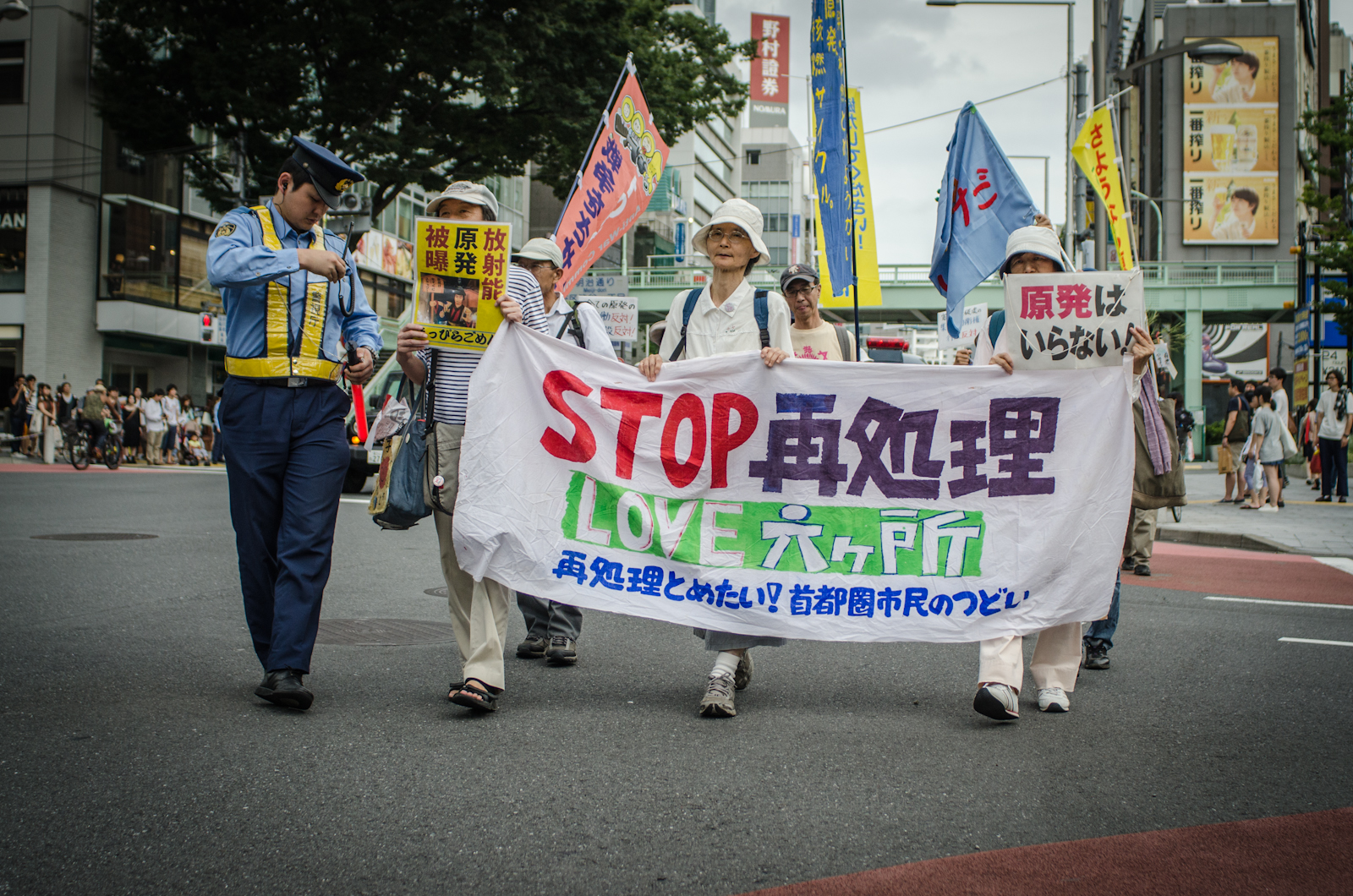
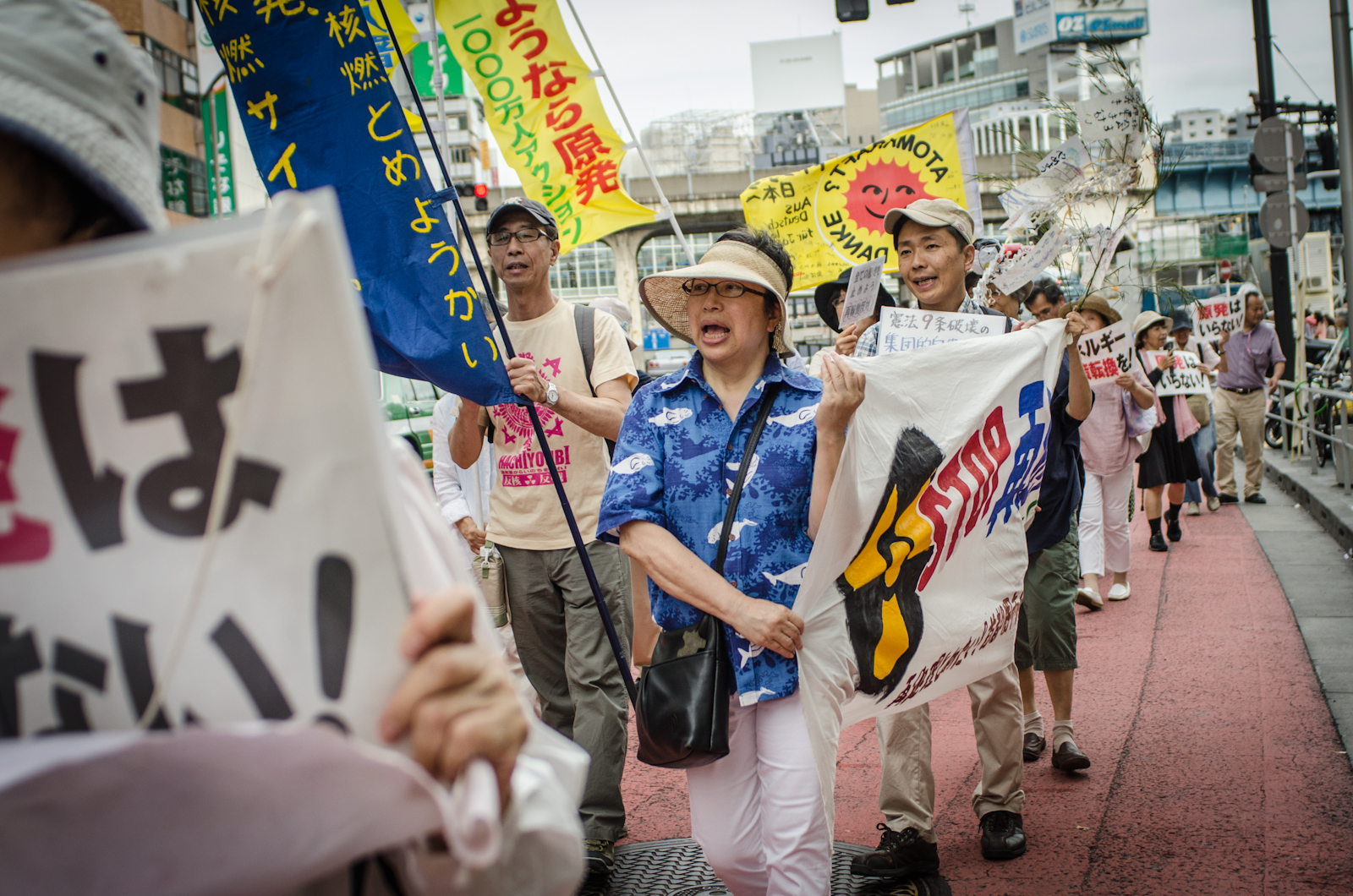
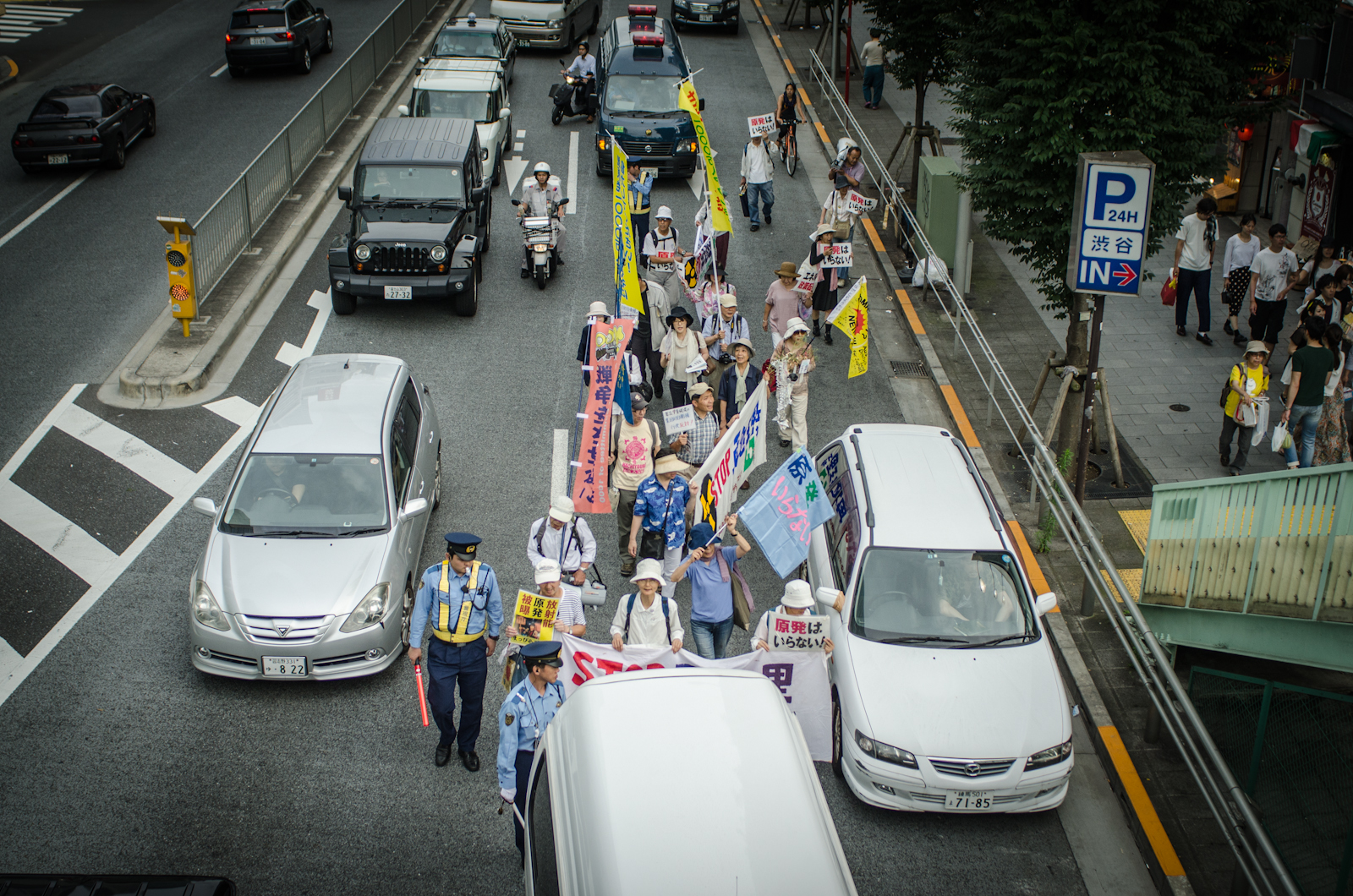
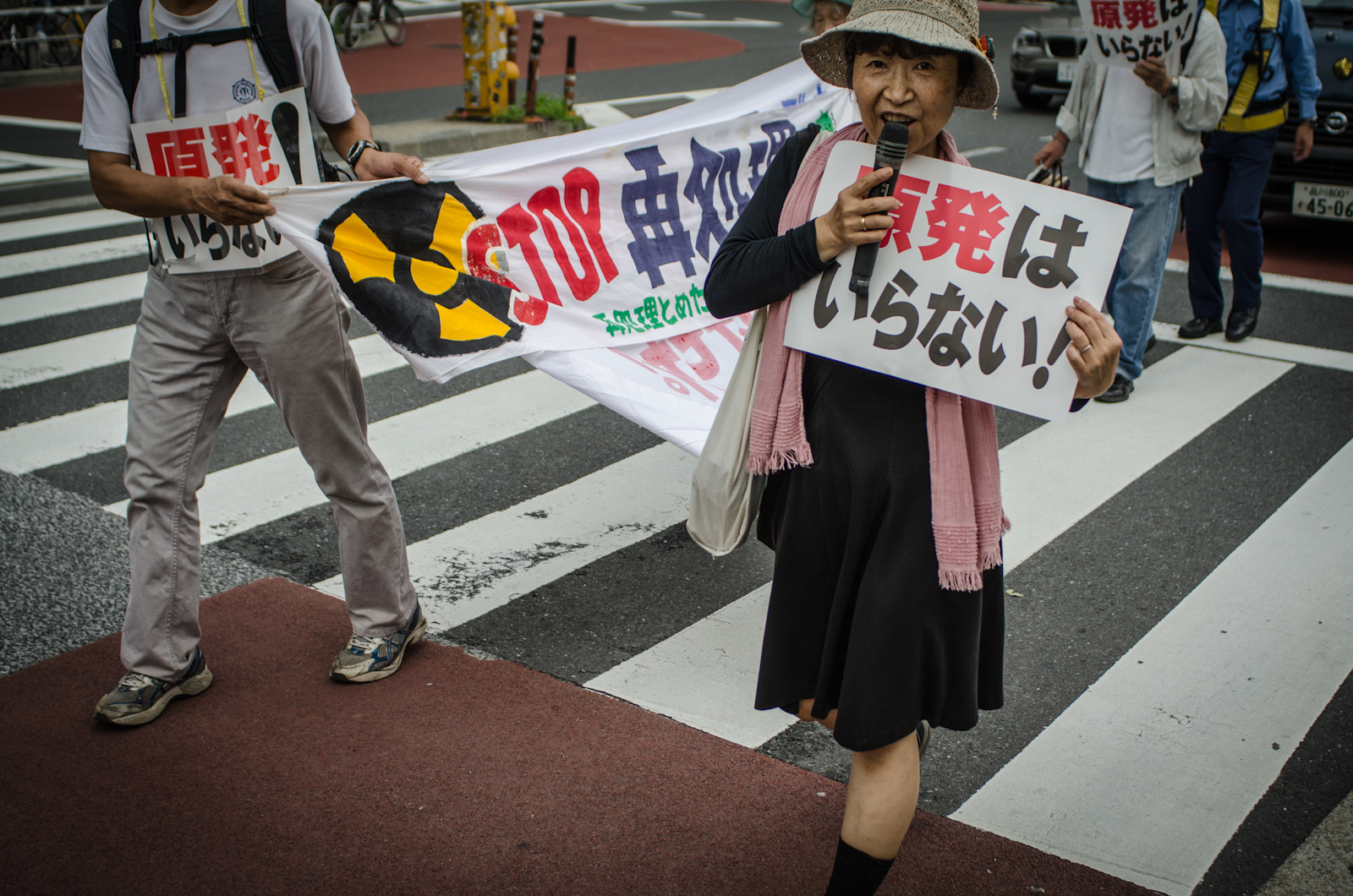
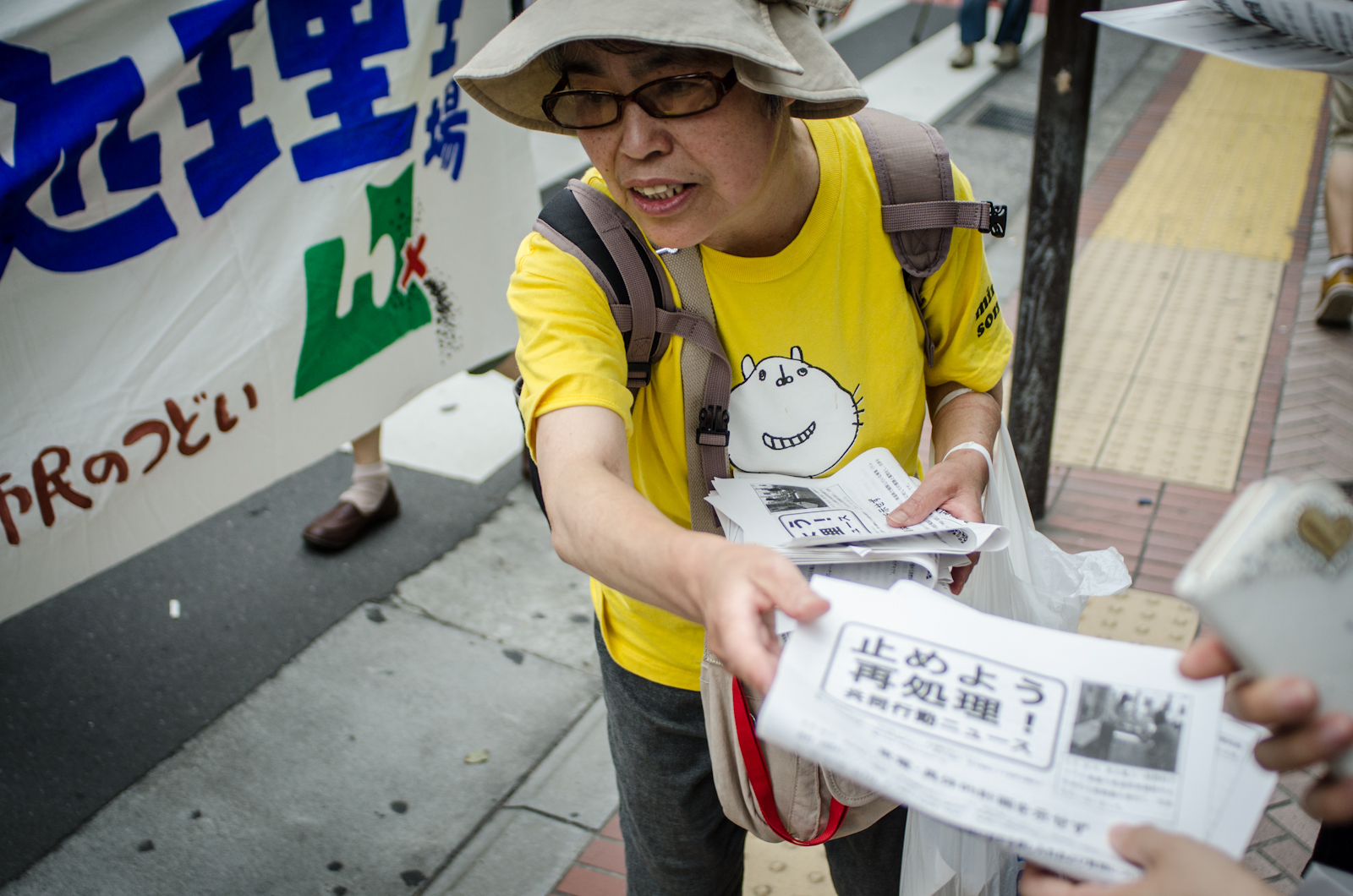
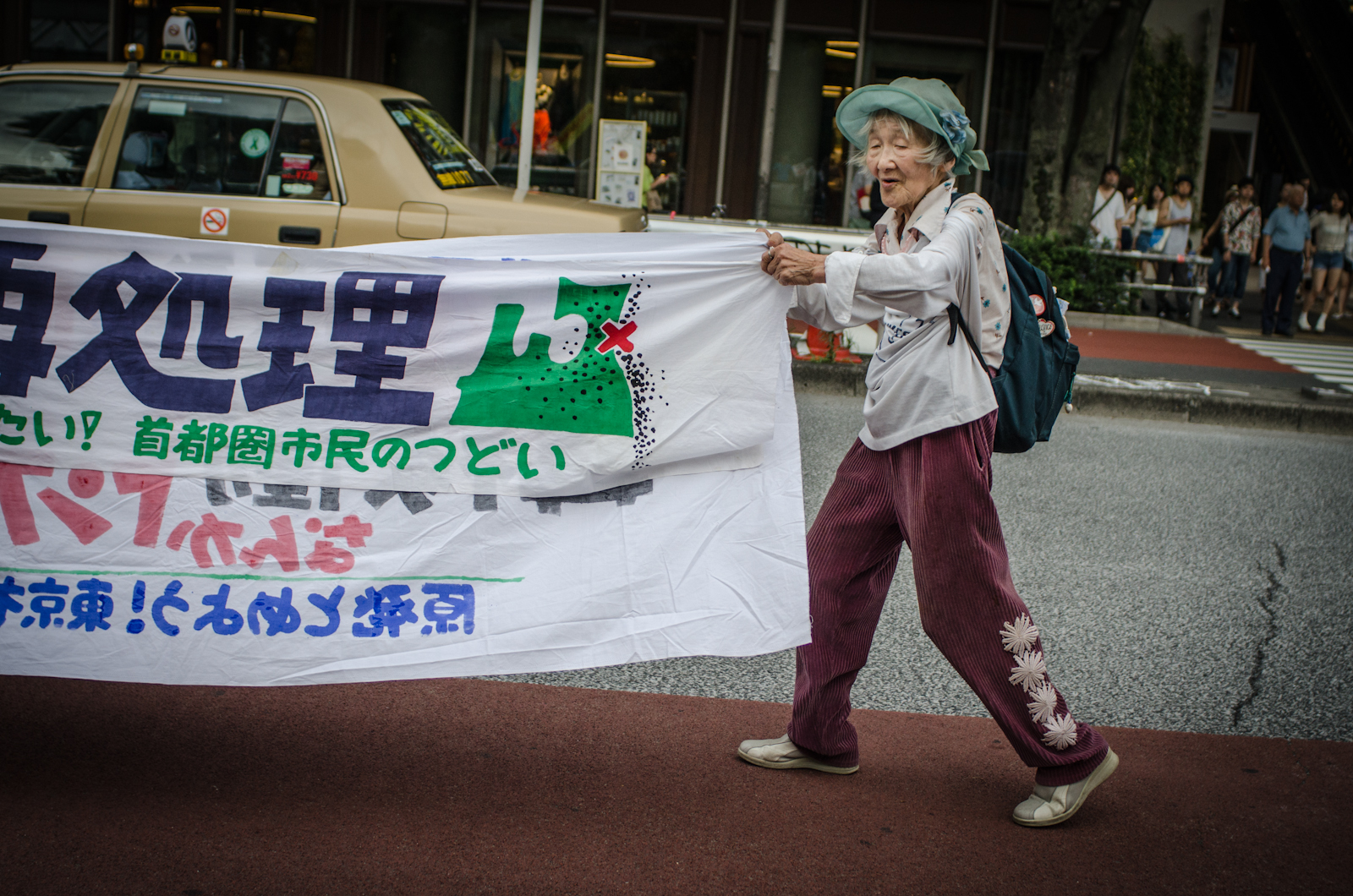
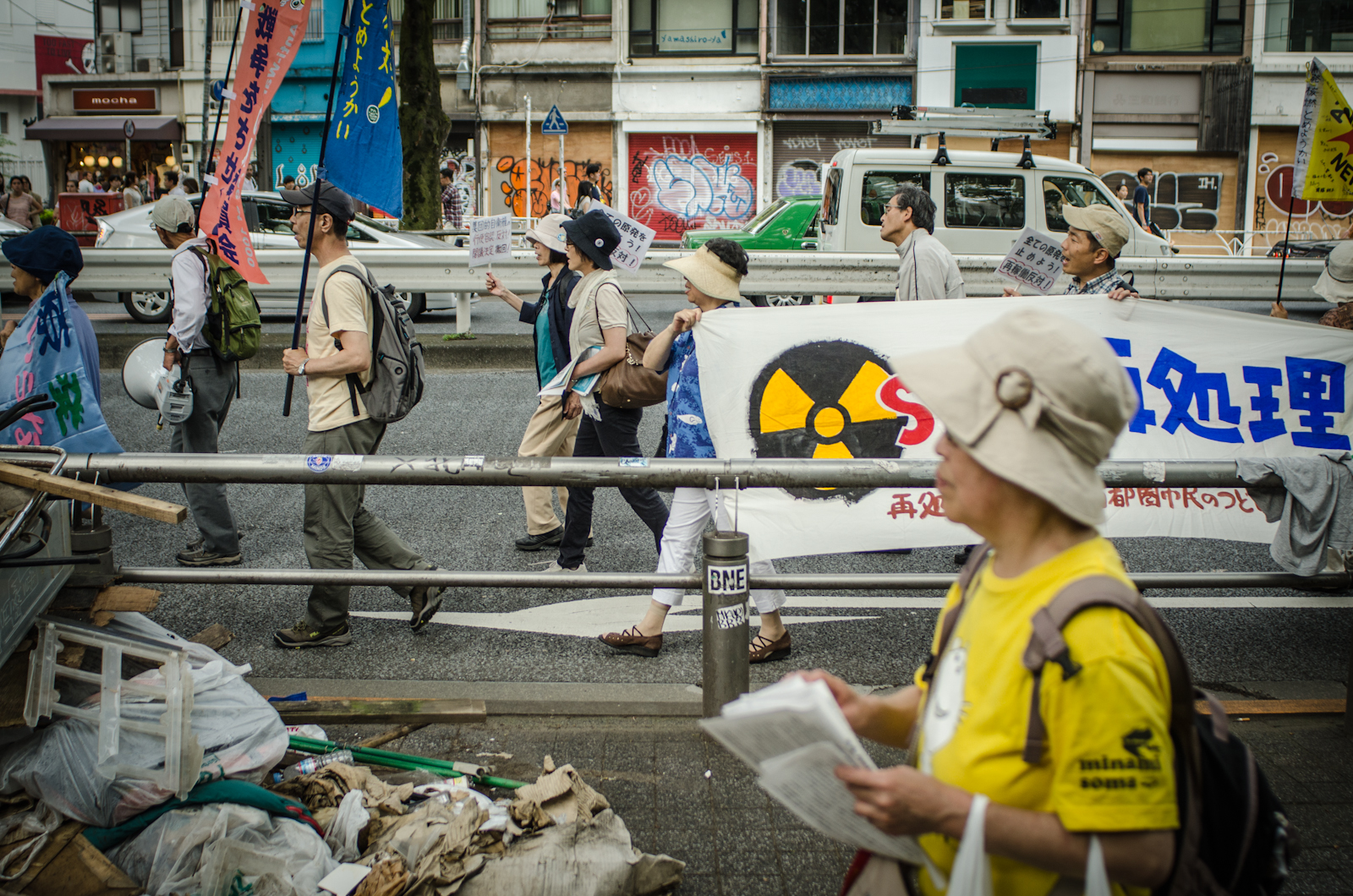





Leave a Reply